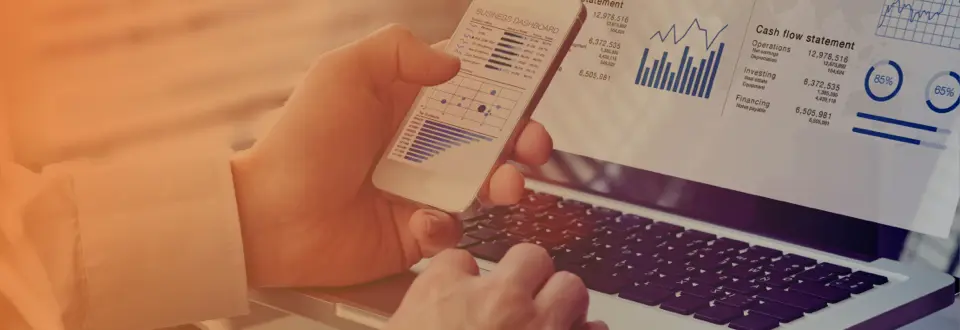Legal compliance creates competitive advantage in Petrolimex’s petroleum business

Petroleum is a commodity of overriding importance and regarded as a “blood vessel” of the national economy. Petrol price fluctuations will affect most industries and individuals in society… Currently, Vietnam has 33 major petroleum businesses (excluding four aviation fuel businesses) and more than 300 distributors participating in the supply of petroleum to nearly 17,000 petrol stations and petroleum business households of all economic and social sectors.
In order to fully comply with the legal regulations in the petroleum industry, businesses are required to have a consistent physical infrastructure system and increasingly stringent management system. These measures are necessary to meet the conditions for operation in the petroleum industry. However, it is not uncommon for some petroleum businesses to overlook or neglect these regulations, resulting in penalties imposed by Government regulatory bodies and in some cases, even the revocation of their business licences.
On November 17, 2023, the Government promulgated Decree No 80/2023/NĐ-CP to amend and supplement some articles of Decree No 95/2021/NĐ-CP dated November 1, 2021 and Decree No 83/2014/NĐ-CP dated September 3, 2014, aiming to continue ensuring transparency, justice and equality in petroleum business activities in Vietnam.
The Vietnam National Petroleum Group (Petrolimex/Group), over 70 years of establishment and development, has always fully comprehended that legal compliance is a crucial foundation for the Group to go on the right track, through which creating competitive advantages and effectiveness for Petrolimex in the area of petroleum trading. As a result, Petrolimex has always been a business pioneering in implementing new regulations of the State.
First, Comprehend historical values left behind along with the strict implementation of the overall national energy planning phases.With large-scale, systematic and appropriate investments according to the national planning, Petrolimex’s infrastructure system has fully complied with legal regulations set for a leading petroleum business. In the domestic petroleum business sector, Petrolimex has 48 member limited liability companies operating in the petroleum business in 63 provinces and cities; a distribution network of over 4,800 petrol stations (of which 2,700 petrol stations are directly owned by Petrolimex); a modern port and warehouse system with a capacity of over 2.2 million cubic meters allocated across the country; over 570km of oil pipeline; a fleet of ocean-going vessels with a total tonnage of over 510,000DWT, and nearly 1,000 tank trucks; 17 quality petroleum testing laboratories; a system of professional and advanced fire prevention and control technology and equipment, etc. With its brand reputation, service quality, and business policies, Petrolimex holds a market share of about 43-45 per cent in the domestic market.

Second, Petrolimex pioneers and is the first enterprise to implement the Government’s Decree No 123/2020/NĐ-CP dated October 19, 2020; the Prime Minister’s Official Dispatch No 1123/CĐ-TTg dated November 18, 2023 and the General Department of Taxation’s Document No 5090/TCT-DNL dated November 13, 2023 on the issuance of electronic invoice after each sale. Previously, to implement the Ministry of Finance’s Circular No 32/2011/TT-BTC dated March 14, 2011 guiding the creation, issuance and use of e-invoices for goods sale and service provision, on April 1, 2018, Petrolimex took the lead in issuing e-invoices instead of the traditional paper invoices for each sale throughout the whole system, and in line with the Decree No 123, on July 1, 2023 Petrolimex officially went live the issuance of e-invoices after each sale at nearly 2,700 petrol stations nationwide. Statistics show that each Petrolimex petrol station has around 1,000 transactions that requires issuing invoices every day. If the electronic invoice system is not implemented, this will be a significant burden for the Group in terms of time, labour, paperwork, and storage costs. Therefore, when Petrolimex deployed the electronic invoice system, it was in line with the inevitable trend, directly reducing the administrative burden, creating convenience for consumers, and reducing business costs. Issuing e-invoices immediately after each sale has created transparency and contributed to building a healthy petroleum market, providing consumers with high-quality service experiences.
Petrolimex is ready to collaborate and support State management bodies in information lookup and control of e-invoices. Concurrently, Petrolimex is also willing to share solutions and experience in implementing e-invoices for partners and customers who desire to cooperate with Petrolimex in the petroleum business sector.
Third, Petrolimex has seriously implemented the Government’s Decision No 49/2011/QĐ-TTg dated September 1, 2011 on the roadmap for the application of exhaust emission standards to newly manufactured, assembled and imported cars and motorbikes.Regarding this, right on January 1, 2018 Petrolimex took the lead in trading Euro 5-standard diesel (DO-V) and officially traded Euro 4-standard RON 95 gasoline (RON 95-V) on January 1, 2022 Petrolimex. Currently 1,070 Petrolimex petrol stations are trading DO-V across the system and 185 stations trading RON 95-V. These are the highest quality fuel products in the Vietnamese market, fully meeting the requirements of supplying fuel for newly manufactured, assembled and imported cars that must comply with emission standard level 5 from January 1, 2022. Among the 33 petroleum businesses, Petrolimex occupies a significant proportion in terms of both DO-V and RON 95-V (since both products are 100 per cent imported), thus this is a great advantage of Petrolimex in approaching and supplying customers with high-quality fuel that ensures efficiency and safety for their vehicles.
That Petrolimex pioneered in trading DO-V and RON 95-V not only demonstrates the Group’s strict compliance with the Government’s Decision No 49 to mitigate exhaust emissions from engines and vehicles that cause greenhouse effects and climate change, and affect the living environment, etc. but also a step-by-step strategic shift towards the goal of making Petrolimex “the leading energy corporation in Vietnam in supplying green, clean, high-quality, environmentally-friendly energy projects based on the Industry 4.0 technology and complete digital transformation”. This contributes significantly to the Government’s commitment at COP26 to achieve the net-zero emissions by 2050. ROADMAP FOR APPLICATION OF RATIOS FOR BLENDING BIOFUELS WITH TRADITIONAL FUELS.

Fourth, Petrolimex fully abides by the Prime Minister’s Decision No 53/2012/QĐ-TTg dated November 22, 2012 on issuing the roadmap for the application of ratios of blending biofuels with traditional fuels. Since December 1, 2015, Petrolimex has sold E5 RON 92 across the country and on January 1, 2018 Petrolimex replaced all mineral gasoline RON92 with E5 RON92. At present, Petrolimex has eight blending depots for E5 gasoline and 2,235 E5 gasoline retail stores (excluding the number of stores in the distribution system). The E5 biofuel has its own specific chemical and physical characteristics compared to regular mineral gasoline. Therefore, in order to sell E5 biofuel, Petrolimex conducted studies and proactively upgraded its technical infrastructure, supplemented operational procedures for all stages from storage warehouses, blending system, waterway and road transportation vehicles, pipeline transportation and petrol stations, and so on. This is not an easy task to implement for any petroleum business. Reality indicates that very few businesses sell E5 fuel, with the majority of businesses disregarding this product (referring to the sales figures of RON92 mineral gasoline – the raw material used to produce E5 fuel – from the Nghi Son and Dung Quat oil refineries), which shows that the level of compliance with the Decision No 53 by petroleum businesses is not high, and there is inequality in the implementation of legal regulations. However, this also contributes to creating a significant competitive advantage for Petrolimex in trading E5 fuel.
Fifth, Petrolimex pioneers in implementing Prime Minister’s Decision No 1813/QĐ-TTg dated January 28, 2021 approving the project to develop cashless payments in Vietnam in the 2021-2025 period.Since November 19, 2021, non-cash payment solution has been applied to all Petrolimex’s petrol stations nationwide, which is seen as a strategic step towards developing Petrolimex as a leading digital enterprise on the Petrolimex Digital Platform, smart, safe, transparent and dynamic. At Petrolimex’s petrol stations, customers can use international cards such as VISA and MASTER, domestic cards within the Napas system and electronic wallets authenticated via QR code in the VNPay alliance. Currently, there are 5,323 POS machines installed throughout the whole system of petrol stations with total transitions using non-cash payment reaching some 15 per cent of the total transactions at petrol stations. Besides, Petrolimex is studying and will soon add cashless payment solutions based on new technologies such as smart cameras and RFID, etc.
Strict compliance with and proper implementation of legal regulations are extremely important for every organisation, business and individual in contributing to the construction of a State of law and the supremacy of law . Enterprises are increasingly participating deeply in the market economy, and with the increasing size of completion and risks, therefore, the enterprises that understand and fully comply with the law will advance further and their business activities will be facilitated, creating a premise for sustainable development.
At Petrolimex, the adherence to the law is always highly respected and deeply ingrained from the Group leadership to each individual employee through every decision, policy and specific task. This is a beautiful tradition and culture of Petrolimex and always helps Petrolimex gain a competitive advantage and efficiency in production and business. It is also one of the important paths leading to success and sustainability of the Group as it is today.









